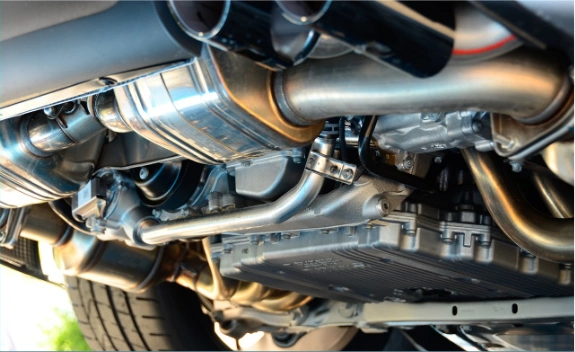The Automobile Oxygen Sensor Global Market Report 2024 by The Business Research Company provides market overview across 60+ geographies in the seven regions – Asia-Pacific, Western Europe, Eastern Europe, North America, South America, the Middle East, and Africa, encompassing 27 major global industries. The report presents a comprehensive analysis over a ten-year historic period (2010-2021) and extends its insights into a ten-year forecast period (2023-2033).
Learn More On The Automobile Oxygen Sensor Market:
https://www.thebusinessresearchcompany.com/report/automobile-oxygen-sensor-global-market-report
According to The Business Research Company’s Automobile Oxygen Sensor Global Market Report 2024, The automobile oxygen sensor market size has grown strongly in recent years. It will grow from $6.21 billion in 2023 to $6.59 billion in 2024 at a compound annual growth rate (CAGR) of 6.1%. The growth in the historic period can be attributed to increasing awareness of environmental issues, increasing automotive production, growth in the number of vehicle models, rise in fuel prices, and growth in electric vehicle production.
The automobile oxygen sensor market size is expected to see strong growth in the next few years. It will grow to $8.39 billion in 2028 at a compound annual growth rate (CAGR) of 6.2%. The growth in the forecast period can be attributed to growing demand for advanced emission control systems, rising demand for performance optimization in luxury vehicles, growing investment in research and development, rising prevalence of fuel-efficient and hybrid technologies, and growing global automotive sales. Major trends in the forecast period include technological advancements, integration of advanced diagnostic systems, adoption of lightweight materials, long-lasting sensors, and adoption of multi-sensor systems.
The increasing vehicle production is expected to drive the growth of the automobile oxygen sensor market. Vehicle production refers to manufacturing vehicles, from initial design to final assembly and delivery. The increase in vehicle production is due to rising consumer demand, economic growth, supportive government policies, and expanding global markets. Automobile oxygen sensors are used in vehicle production to ensure optimal engine performance, fuel efficiency, and emissions control by monitoring the oxygen levels in the exhaust gases, which helps calibrate the air-fuel mixture and meet regulatory standards. For instance, in May 2023, according to the European Automobile Manufacturers Association, a Belgium-based trade association, around 85.4 million motor vehicles were produced globally in 2022, a 5.7% increase from 2021. Therefore, increasing vehicle production is expected to drive the growth of the automobile oxygen sensor market.
Get A Free Sample Of The Report (Includes Graphs And Tables):
https://www.thebusinessresearchcompany.com/sample.aspx?id=18235&type=smp
The automobile oxygen sensor market covered in this report is segmented –
1) By Product Type: Zirconia Sensor, Wideband Zirconia Sensor, Titania Sensor
2) By Location: Catalytic Converter, Exhaust Manifold
3) By Application: Gasoline Fueled Vehicle, Diesel-Fueled Vehicle
4) By Sales Channel: Original Equipment Manufacturers, Original Equipment Suppliers, Independent Automotive Suppliers
5) By End Use: Passenger Vehicle, Light Commercial Vehicle, Heavy Commercial Vehicle
Major companies in the automobile oxygen sensor market are focused on developing innovative products, such as OBD2 code reader, to enhance their product offerings and stay competitive. An OBD2 code reader is a diagnostic tool that interfaces with a vehicle’s On-Board Diagnostics (OBD) system. This system monitors and controls various aspects of the vehicle’s performance, emissions, and other critical functions. For instance, in January 2024, Diabit, a China-based automotive diagnostic tool manufacturing company, introduced the B25 on-board diagnostics OBD2 code reader. This advanced device offers wireless connectivity via Bluetooth 4.0, allowing users to easily access diagnostic data and trouble codes from their vehicle’s OBD2 port. Key features include I/M readiness status for emissions testing and live sensor data monitoring, including information on oxygen sensors, coolant temperature, and fuel system performance. The B25 enhances vehicle diagnostics with its seamless wireless functionality and comprehensive data access.
The automobile oxygen sensor market report table of contents includes:
1. Executive Summary
2. Market Characteristics
3. Market Trends And Strategies
4. Impact Of COVID-19
5. Market Size And Growth
6. Segmentation
7. Regional And Country Analysis
.
.
.
27. Competitive Landscape And Company Profiles
28. Key Mergers And Acquisitions
29. Future Outlook and Potential Analysis
Contact Us:
The Business Research Company
Europe: +44 207 1930 708
Asia: +91 88972 63534
Americas: +1 315 623 0293
Email: [email protected]
Follow Us On:
LinkedIn: https://in.linkedin.com/company/the-business-research-company
Twitter: https://twitter.com/tbrc_info
Facebook: https://www.facebook.com/TheBusinessResearchCompany
YouTube: https://www.youtube.com/channel/UC24_fI0rV8cR5DxlCpgmyFQ




